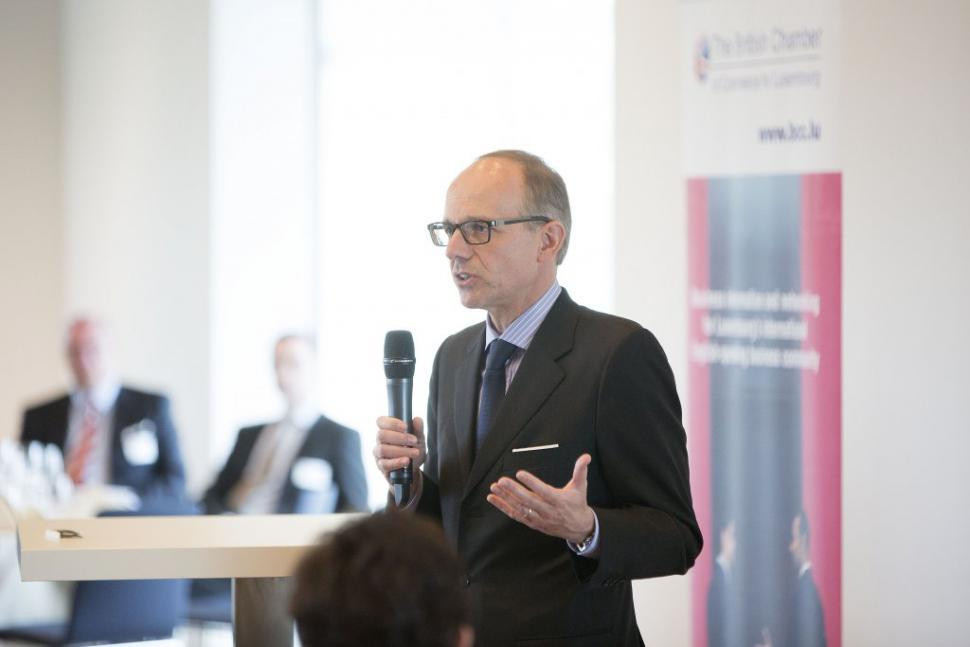“The Brexit referendum was irresponsible and should never have taken place. However, it has and now must be respected,” was the general consensus of opinion at the British Chamber of Commerce financial services evening forum that took place on Wednesday 25 April 2018.
Luc Frieden, chairman of the board of Banque Internationale à Luxembourg, opened the discussion on “Hard or soft, what’s on the Brexit menu?”, where it soon became clear that the menu is not important if the UK government still doesn’t know what the main ingredients are.
“I have talked to senior UK politicians who still don’t know what is going to happen,” said Frieden, adding that, “The referendum should never have taken place as people did not understand what they were voting for.”
“However, it has, and the problem now is the process for the UK’s withdrawal. This has never happened before so there is no template. Indeed, Article 50 was only introduced into the Lisbon Treaty in December 2009 and has never been triggered until now.”
For many of the panellists this process is taking too long and several crucial elements lack much needed clarity, most particularly the issues of passporting and delegation.
Briefly, passporting is where a company (or fund) has the right do business or be distributed in another EU member state without the need to set up a representative office in each jurisdiction. It facilitates the provision cross-border services, which is a huge benefit as it does away with a lot of the red tape and cost associated with gaining authorisation from each individual country.
Post-Brexit the UK will no longer have this advantage and instead is seeking to negotiate third country equivalence. The concept of equivalence was introduced by the EU economic and financial affairs council, Ecofin to allow non-EU countries, under certain circumstances, to access the single market.
According to Frieden, however, “What the UK wants is very far from political reality.”
Noel Fessey, CEO of European Fund Administration, asked: “We cannot reply on the passport anymore. So, will funds set up offices in the EU then delegate back to the UK?”
The problem with this is that letter-box companies are not allowed in Luxembourg, which are required to provide and prove substance and, it is also not clear exactly which functions can be delegated.
“The issue is complex,” said Fessey, “and UK wishful thinking is not good enough.”
Brexit will be the topic of the cover story of Delano’s June print edition, as well as Delano Live which will take place on 7 June 2018. We will take a deeper and broader look at how it is likely to impact citizens and businesses alike.
